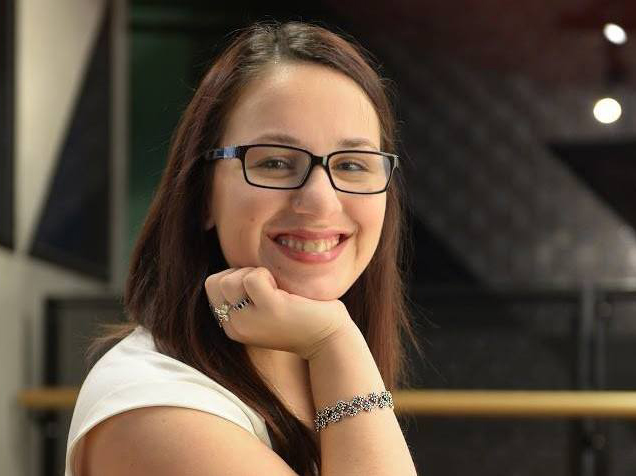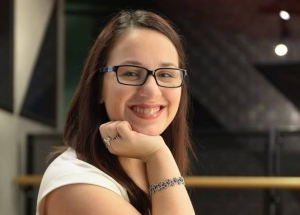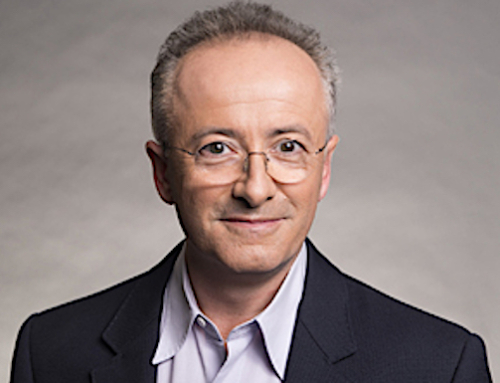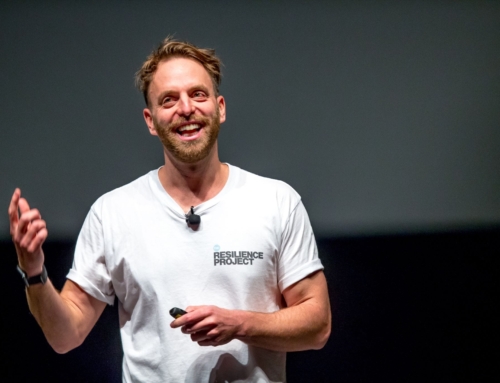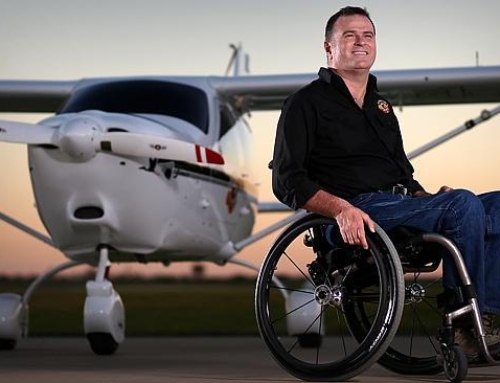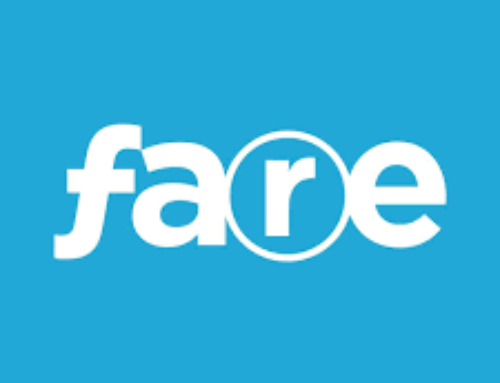Leading up to August 9th 2016, Census Night, twenty-three year old Madeleine Buchner had some words of encouragement for other young carers, “TICK THE BOX”. In February 2016, a report by the Australian Child Well-being Project (ACWP) found that only 40% of people who live in a family with a health concern, mental illness, chronic illness, or drug or alcohol dependency, classify themselves as young carers. This means that the number of young carers in Australia, currently estimated at 420,000 people, is likely to be closer to 600,000 people. These statistics differ greatly from the last census, when only 115,000 people recorded that they were a young carer.
A young carer is :
“A person under the age of twenty-five, who is put in the position of providing help, care or assistance to a family member with a chronic illness, mental illness, disability, drug or alcohol addiction or other serious illness or significant injury.”
Madeleine is one such carer. Her brother Charlie, is her hero and inspiration, “He’s everything to me, I would run across the world to make sure that he is OK.” Charlie is now just shy of his twenty-first birthday and lives with a range of chronic illnesses, which include epilepsy, adrenal insufficiency, asthma and fibromyalgia.
“He’s also had encephalitis, whoopping cough, pneumonia, chicken pox that went into his lungs and glandular fever. He’s been in and out of hospital since he was six months old. He has a very low immune system so he catches everything.”
At the tender age of nine, Madeleine realised she needed more support:
“My brother was really really sick and I turned to my best friend and said, ‘There’s so many people that are looking after my brother and so many people looking after my parents, but I feel very left out.’ Looking back on that, I always feel like that’s a very selfish way to think. My brother was really sick, obviously people care about him but in the same way there’s another child in the family who’s often getting left out.”
This conversation was the impetus for Madeleine and her friend Bec to fundraise for the big brother/big sister program Carenet Kids Club:
“My parents were a really big help, my mum used to have these little stretchy toy alien things and we had a giant box and we stood outside our house and we sold them, kind of like a lemonade stall. We did that every weekend for about a month.”
The people at Carenet then suggested they help put on a bigger fundraiser, and the two nine year-olds chose their favourite place, the Plaster Fun House, as the host venue:
“We had a party, and Peter Mitchell, the newsreader, come down because two nine years running a fundraising event seemed to be something that the media really likes a lot.”
They also raised funds for Carenet through a sports clinic, a colour-in two children’s fashion parades and movie nights:
“We were very lucky, my uncle works at Village Roadshow so we got the movies from him. My mum has always worked in non-for-profits, and my dad works in hospitality, so we had a lot of contacts that we could use.”
As well as caring for her brother, at fifteen years old, Madeleine took on the role of caring for her mother:
“My mum was diagnosed with breast cancer and she was really sick from that. She’s been left with really bad arthritis in her hand so she has trouble tying shoelaces, putting on moisturiser, cutting up her food…as a result of her chemo.”
It was at that time the girls decided to take matters into their own hands:
“When we were fifteen, we thought, ‘Well, we’ve been doing this for six years now, why don’t we start our own organisation and do it our own way?’, so we launched Little Dreamers when we were sixteen.Little Dreamers has been around for seven years, all our programs come out of personal experience and what we would have liked when we were younger.”
Beth has gone on to have success running her own dance school and Madeleine has taken Little Dreamers national; it is now supporting young carers in every state and territory across Australia. It is the only Australian organisation working solely with young carers under the age of twenty-five. In its humble beginnings, the Little Dreamers organisation was built around one program, ‘The Dream Experience’ program, which, similar to The Starlight Foundation’s ‘Make A Wish’ program, grants wishes to the siblings of ill people. Madeleine tells the story of one of the girls they support:
“Her brother has severe autism, so he can’t communicate. It’s always about her looking after him and trying to understand his feelings and emotions. She often has to go home from school and look after her brother while her mum’s still at work. She helps to cut his fingernails so they don’t get too long, so he doesn’t scratch anyone, and things like that. We granted a dream experience for her a number of years ago now, she got to be a zoo keeper for a day, which was really cool, she got to feed the giraffes.”
In October 2015, Madeleine had the honour of attending the Forbes Under 30 Summit in Philadelphia, in the company of 2,000 of the best entrepreneurs and young minds from around the world.
Madeleine was also chosen to take part in a business development program called YGAP Spark. She found out about the opportunity through previously participating in the Young Social Pioneers Program, an initiative by the Foundation for Young Australians:
“Someone posted in the Facebook group that YGap Spark had launched their accelerator program in Australia, so I applied. I went over to the US last year for a conference and the day before I got a call “We want you to come for an interview.”, so I had my interview the day before I went to America, and then I found out that I was going while I was over in America!”
Bringing to mind Big Brother, Madeleine lived in a house in Brighton Victoria for six days with five other young people who were starting their own organisations:
“We went through the most intense week of breaking down your program and rebuilding it. From the beginning we said, ‘OK, what are we trying to accomplish? What’s our end goal? What do we want to see happen in the world? What are the problems associated with that? How can we fix that problem?’ We looked at what we’re currently doing, and how we can better do that to support and fix all the problems that we found. Out of this program, I worked with some incredible mentors, and bounced ideas off them. I met Lyndon , who’s now one of my best friends through YGAP Spark. I ring him for everything now and I wouldn’t have known him had it not been for this program. and I still meet with people from this program once a week, once a month and I can now pick up the phone and call people from investing companies and EXTREMELY successful businesses now and say ‘Great, I have this really cool idea, how do you think this will work?’ or ‘I want to start this, how do I measure the impact?”
The YGAP Spark Program encouraged Madeleine to develop a more effective business plan where more people can be helped in a shorter amount of time:
“Granting a dream experience isn’t going to change anyone’s life, it’s going to make them feel better about their situation maybe for a week, maybe for a month, maybe for a year, but it’s not going to ultimately change their life or make their situation any better. The question was, ‘How can we actually create a lasting and meaningful impact in their lives?'”
The result was the development of new programs and resources, with a focus on social connectedness, so that young carers can meet and develop a support network. To Madeleine, making sure young carers still enjoy their childhood is of great importance, so Little Dreamers has just launched their own colouring book.
Currently Little Dreamers:
- are running the ‘Dream Experience’ program which has been going for seven years;
- are running the Young Carers Festival in October, which is in its third year this year;
- are launching a holiday program this year with Ronald McDonald house for the brother or sister who are also living in the house with their sick sibling;
- are launching an on-line dream coaching platform, a forum where young carers can communicate with each other;
- have a resource library with information on how to access your carers leave; or tips on what to do if things are getting stressful at home;
- have a directory of all the other services that can help young carers in the country, broken down by state, with information on whether the organisation is a support group, whether the organisation offers financial support, whether the organisation runs camps;
- have an inspirational library with stories about how young carers overcame their challenges.
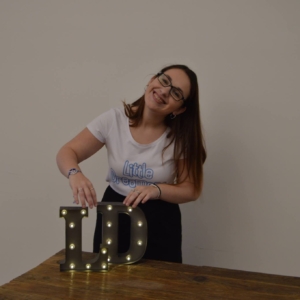
Social connectedness is vital when you consider that two out of three young carers have a mental illness, such as anxiety, and the vast are forced, through circumstance, to finish their education prematurely:
” …just because each day is so unsure and there’s very little structure. I know growing up there was very little structure in my life, I didn’t know whether my brother would be at home or at the hospital. Out of the number of young carers who are primary carers, 96% drop out of education. I wasn’t a primary carer, I was a secondary carer, my mum was the primary carer, but if my mum hadn’t been around, or if I was in a single parent family and it was my mum, where I was the only child, I would have been considered a primary carer and the likelihood of me dropping out of school or not going on to further education would have been extremely extremely high.”
Madeleine says identifying with the label of ‘young carer’ can be empowering:
“I met a guy a couple of months ago, he’s twenty-four and has been caring for his mum for over ten years. His mum had cancer, a drug dependency and depression. He was involved in driving her to rehab, visiting her in psych wards and things like that, and until he met me, he never knew he was a young carer. He dropped out of school in Year 11, and he’s now realised, a lot of that was because of his caring role, but at the time, that didn’t occur to him.”
She says it is common for young carers not to seek assistance for themselves, because they view their role as just another aspect of family responsibility:
“I meet so many carers all the time, and they are so inspirational because they’re like, ‘Yeah this is just what I do, this is just what I do, I care for my mum and my brother, I do the shopping’. They don’t realise that other kids their age don’t know how to do the shopping, and don’t know how to pay bills, and don’t know how to pour out someone’s medicine. Once they realise, they’re like ‘Oh, this makes so much sense as to why I’m struggling with X, Y and Z.'”
The decision for family members to take on the caring role themselves, rather than employing an outsider is often financial (a burden with which the National Disability Insurance Scheme will hopefully assist), but every situation is different.
If you are a young carer, Madeleine’s message is, “Don’t be ashamed, it’s not something you have to hide”. Power and support can come from identifying as a young carer:
“I always knew that I had a sick brother, but I never knew that I was a young carer. Once you acknowledge and you realise that you fit under that term, there’s so many supports that you can get: financial support, mental health support, education support…”
Madeleine, who is now in her final semester of a marketing degree at RMIT has just started on a wage at Little Dreamers, thanks to a generous private donor:
“The amount that I’ve got is for about a twelve week contract at the moment, it might be a bit more, it might be a five month contract for Little Dreamers now, so I know that I’ll be getting paid two and a half days a week for the next five months, and then within that five months I’m then going to search for other ways for us to become sustainable and continue paying me, because the amount that I’ve now been able to accomplish working full-time in Little Dreamers even though I only get paid part-time for working in it, I’m just able to accomplish so much more.”
In the seven years of its existence, Madeleine estimates that Little Dreamers has granted one hundred experiences through the ‘Dream Experience’ program and supported approximately 500 kids through the Young Carers Festival. The team have accomplished this without any government funding, the lack of which enables them imbues them to create the programs and resources they want, without having to adhere to strict guidelines.
Government support would be appreciated though, in terms of raising awareness and breaking down stigma around being a young carer, disability and illness:
“The Government can provide better systems federally for young carers;[they can help by] acknowledging that there are young people, as young as six years old who have a caring role in their family, and then making caring a responsibility that’s shared and held by government, community and family.”
Currently the Government provides a Young Carers Bursary, which is only $3,000 annually (an amount you need to re-apply for every year) to 333 young carers, a number which Madeleine finds annoying and insulting:
“It’s great that they’re acknowledging young carers, It’s something that really annoys me, because the Government then feel like they’re doing what they need to be doing, when really, they’re not. When you consider there are 420,000 young carers and potentially over 600,000 young carers, 333 packages doesn’t really make that much of a dent for me. [The Government can help by] providing more funding for organisations such as Little Dreamers, Alfred Health and Carers Victoria that are on the ground working with young carers, so we can do our job properly and make the difference.”
Any person who would like to support Little Dreamers can do so, either financially, “ funding to help us better run our programs”, or through raising awareness of young carers, “helping us get the word out about Little Dreamers, and about the need to support these often hidden and vulnerable superheroes that we have in our community.”
Madeleine, who is also studying a Diploma in Business and Entrepreneurship has recently written a children’s book titled ‘My Brother is Sick Again‘ to help the siblings of sick children express their feelings about the situation, and to help with the common feelings of isolation and loneliness. So how does Charlie feel about little Dreamers? “He’s extremely proud of how far the organisation has come, because he was the reason behind it all in the first place!”
For a person who has achieved so much at such a young age, it is perhaps surprising that Madeleine sometimes needs to be reminded of her achievements:
“I have a friend who is really good at telling me to stop and look how far I’ve come. I’m also a country music fan, Luke Bryant, Blake Sheldon, so whenever I’m stressed, I put country music on.”
Despite all that she has achieved, it seems like Madeleine is just getting started. Her vision for the future is to open a ‘Dream Hub’:
“…a place for young carers to come and do their homework, with tutors, away from the stressors of home. There can be yoga classes, dance classes, drop-in time for psychologists and social workers, a time where they can come and get their hair cut or learn how to do their makeup, learn how to write a resume and apply for jobs, a place where young carers feel safe.”
If you are a young carer, or would like to support Little Dreamers, please contact Madeleine by e-mail [email protected] or the Little Dreamers facebook page.
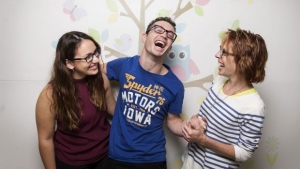
Madeleine with her brother Charlie and mother Lisa

